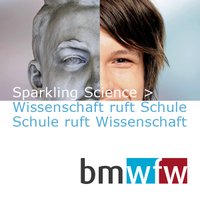City-Country-Child – An Intergenerational Ethnography on Rural Images of Longing
BMWFW | Sparkling Science
led by Martina Fineder, Institute for Education in the Arts
Duration: 1.9.2017 – 31.10.2019
Departing from the photography collection of the Austrian Museum of Folk Life and Folk Art – one of a kind in Europe – the research project “Stadt-Land-Kind” investigates the myth of a better life on the countryside from an intergenerational perspective. In a dialogue with scientists, students research prevalent urban-rural constructions and the corresponding productions of images and meaning in an exchange with (grand-)parent generations.
Which images do we use to “write” our history of the countryside? And which social constructs and (future) promises are negotiated in these images? The objective, on the one hand, is to deconstruct conventional notions of authenticity, utilized today in images of the countryside by touristic, product, and political branding. On the other hand, the project aims to update memories of rural Austria through a) the critical investigation of historically and culturally constructed motifs of longing, b) the generation of new multiperspectival images, and c) collective exhibition.
This transdisciplinary approach weaves strands of visual and sensory ethnography, research into design and everyday life, and museology into a profitable and fruitful constellation. Intergenerational focus groups with picture talks, research postcards, and photo expeditions will be employed in the ethnographic research process with the students for an active-reflexive image production. While the sciences benefit from the analysis and updating of the visual and material cultures together with the population, the impetus for educational policy resides in the exploration of an open concept of Heimat and the enhancement of visual literacies with school children and their families. In addition to accompanying workshops, the project will be open to the public in a final exhibition at the Museum of Folk Life and Folk Art in Vienna.
